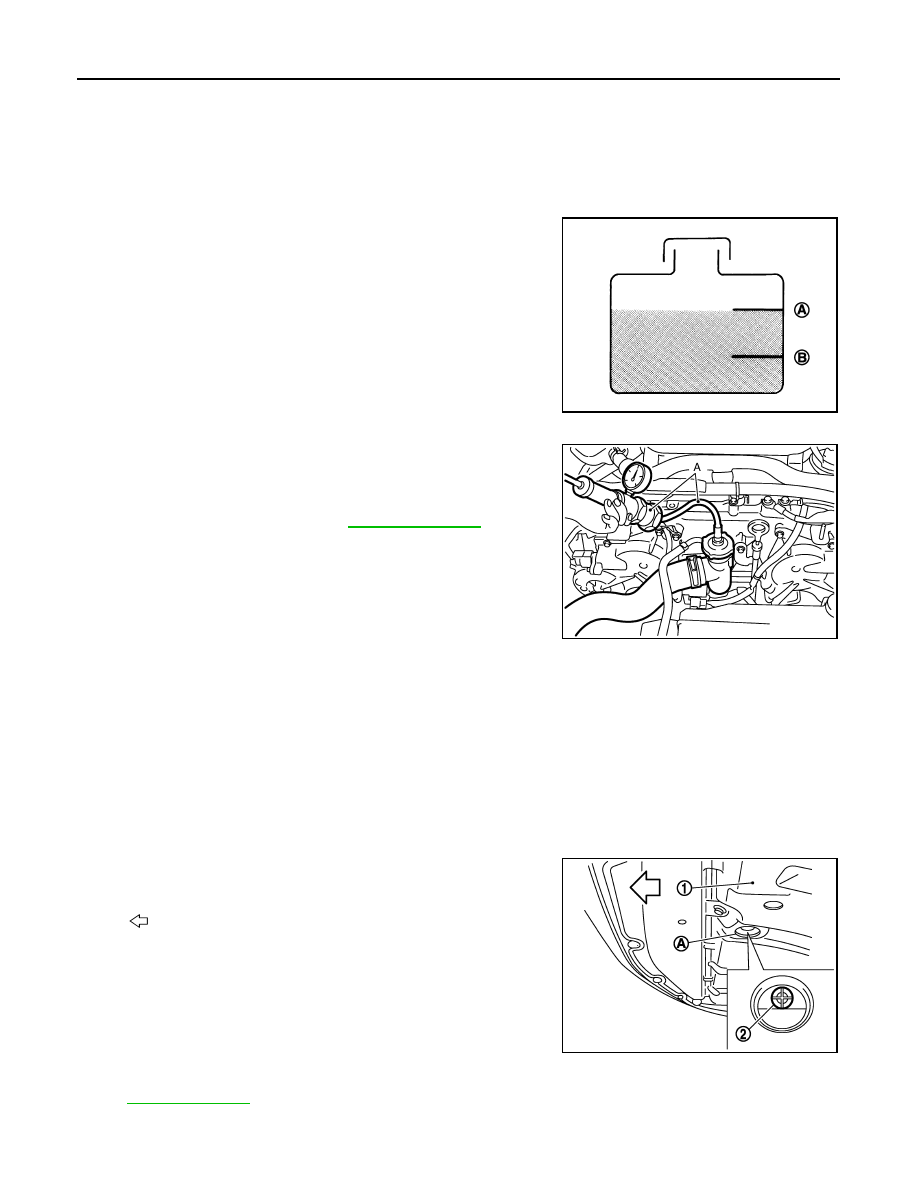Infiniti G35 (V35) Sedan. Manual - part 315

CO-8
< ON-VEHICLE MAINTENANCE >
ENGINE COOLANT
ON-VEHICLE MAINTENANCE
ENGINE COOLANT
Inspection
INFOID:0000000000956338
LEVEL
• Check if the reservoir tank engine coolant level is within the “MIN”
to “MAX” when the engine is cool.
• Adjust the engine coolant level as necessary.
• Check that the reservoir tank cap is tightened.
LEAKAGE
• To check for leaks, apply pressure to the cooling system with the
radiator cap tester and radiator cap tester adapter (commercial
service tool) (A).
WARNING:
Do not remove radiator cap when engine is hot. Serious burns
could occur from high-pressure engine coolant escaping from
radiator.
CAUTION:
Higher test pressure than specified may cause radiator dam-
age.
NOTE:
In a case that engine coolant decreases, replenish radiator with engine coolant.
• If anything is found, repair or replace damaged parts.
Draining
INFOID:0000000000956339
WARNING:
• To avoid being scalded, do not change engine coolant when the engine is hot.
• Wrap a thick cloth around radiator cap and carefully remove radiator cap. First, turn radiator cap a
quarter of a turn to release built-up pressure. Then turn radiator cap all the way.
1.
Open radiator drain plug (2) at the bottom of radiator, and then remove radiator cap.
When draining all of engine coolant in the system, open water drain plugs on cylinder block. Refer
to
.
2.
Remove reservoir tank as necessary, and drain engine coolant and clean reservoir tank before installing.
A
: MAX
B
: MIN
JPBIA0102ZZ
Testing pressure
: Refer to
.
JPBIA0411ZZ
1
: Engine under cover
A
: Radiator drain plug hole
: Vehicle front
JPBIA0259ZZ